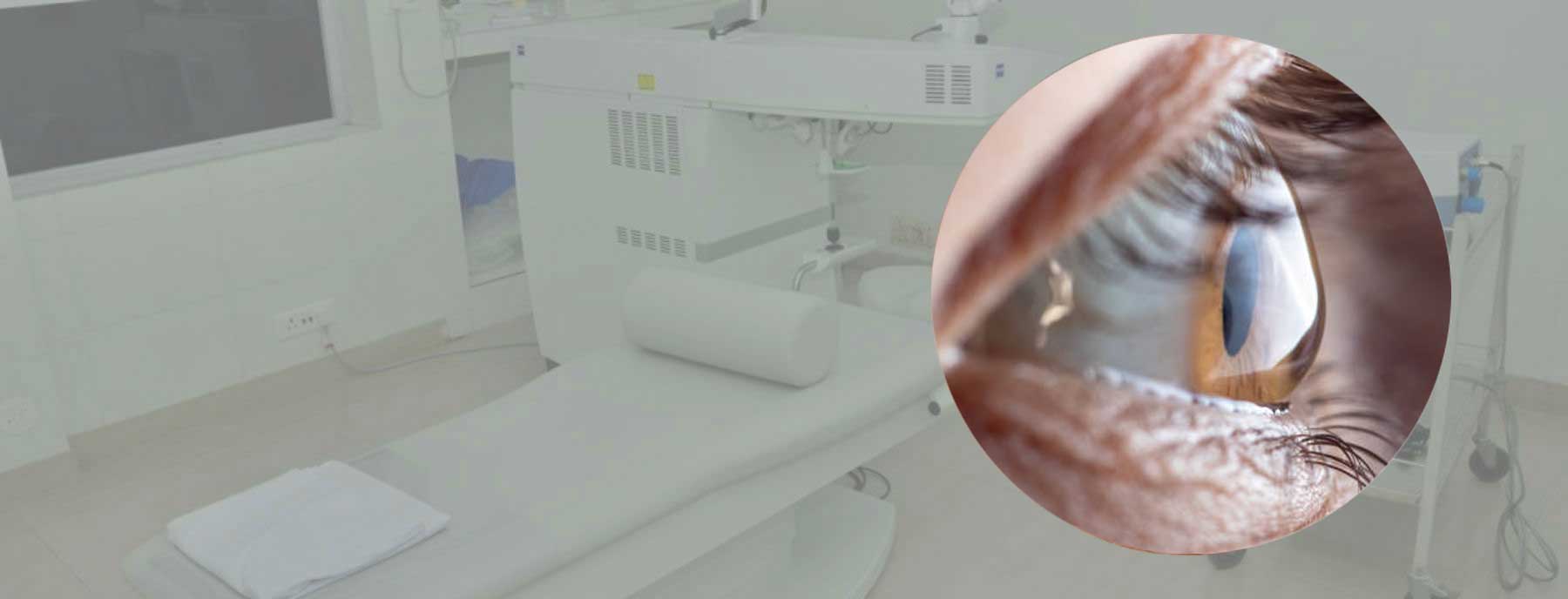What is Cornea Transplant?
The cornea is the transparent front part of the eye that covers the pupil, iris, and anterior chamber. It is responsible for two-thirds of the power of the eye. In humans, the refractive power of the cornea is approximately 43 dioptres.
While the cornea contributes most of the eye’s focusing power, its focus is fixed. The curvature of the lens, on the other hand, can be adjusted to “tune” the focus depending upon the object’s distance
Cornea Treatment in Rohtak?
The human cornea has five (possibly six) layers. The cornea has a diameter of about 11.5 mm and a thickness of 0.5–0.6 mm in the center and 0.6–0.8 mm at the periphery. Transparency, avascularity, and the presence of immature resident immune cells make the cornea a very special tissue. The cornea has no blood supply, it gets oxygen directly through the air. Oxygen first dissolves in the tears and then diffuses throughout the cornea to keep it healthy. Therefore, disturbance in the tear film can be detrimental to the health of the cornea. The best Cornea Surgeon in Delhi treats all types of corneal disorders like dry eye, keratoconus, corneal dystrophies, and allergic and immune pathologies.
The following are the most frequent corneal disorders
Corneal abrasion: A medical disorder characterised by the loss of the cornea’s surface epithelial layer as a result of trauma to the eye’s surface.
Corneal ulcer: Corneal inflammatory or infectious disease characterised by breakdown of the epithelial layer and involvement of the corneal stroma.
Fuchs’ Dystrophy: The morning is cloudy.
Keratoconus: The cornea thins and changes shape as a degenerative illness, resembling chemical burns, trauma, or injuries.
Corneal Dystrophy: A condition in which a buildup of hazy material causes one or more regions of the cornea to lose their typical clarity.
Corneal neovascularization: Due to a lack of oxygen in the air, significant ingrowth of blood vessels from the limbal vascular plexus into the cornea occurs.
Keratitis: Inflammation of the cornea.
Warning Symptoms of Cornea?
Corneal transplants, both full thickness and lamellar are performed routinely. In fact, of all the tissue transplants, the corneal transplant is the most successful owing to the unique properties of this tissue. But sometimes, the body can reject this tissue which is taken from a cadaver immediately after death. If the transplanted cornea is rejected by the body, the following symptoms may occur:
- Redness
- Pain
- Decreased vision
- Extreme sensitivity to light


